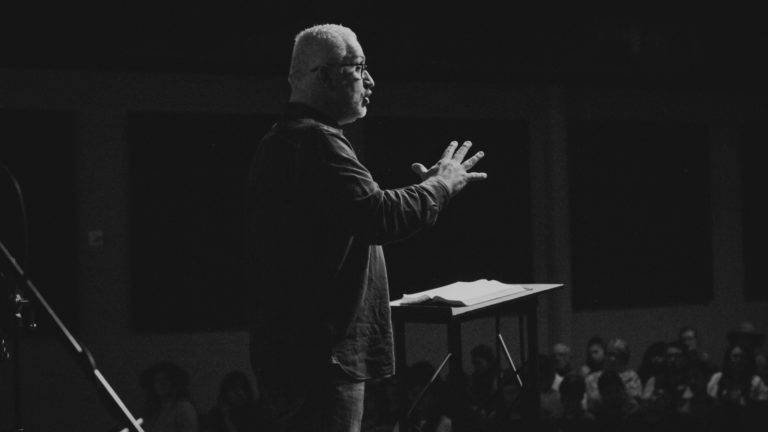I Help people sing and speak expressively and powerfully no matter the level of experience :)
HI, I'M JORGELINA
EXPAND YOUR VOCAL RANGE TODAY!
Grab today my 3 SINGING SECRETS to expand your vocal range for FREE!
GRAB IT NOW

The voice of the highly sensitive person
Being a Highly Sensitive Person does not make you weak. On the contrary, if you are aware of the effect this has on your voice, you can make it work in favor of not only your voice but also your whole expression.
My main interest has always been the human voice. It wasn’t until I discovered that I had a trait that we call “highly sensitive person” that I understood why certain aspects of my voice were harder to release than for most people.
Being a HSP is not easy. You feel everything more intensively than most people. For us, emotions are not something we can just ignore or block. We get overwhelmed easily and different stimuli that for normal people are fun and desirable, for us are an object of unnecessary stress.
DIFFERENT WAYS BEING A HSP AFFECTS YOUR VOICE
Your voice can’t lie.
As HSP, our emotions are usually stronger, or at least it feels so. Something we can’t ignore.
Our voice is a reflex of what is going on in our internal world. When you are sad, your voice reflects it. When you are angry, your voice reflects it too. And it is like that with every other emotion that you can think of.
Emotions can either be blocked, reacted to, expressed, or simply felt. If you don’t know how to manage your emotions, more often than not you are going to find yourself reacting to them – for example yelling, slamming doors, etc.
As a HSP, this reactions can be a bit more obvious
What to do about it
If your emotions are messing up with your voice, there are things you can do about it.
Learn to feel your emotions rather than repressing them.
Let me give you an example. Let’s say that you are watching a movie that makes you want to cry, and you have company. You don’t need to speak in this situation, of course. But let’s look at the options we have to deal with this:
- Repressing the emotion: if you don’t want to cry in front of your company, you are probably going to try to block the tears. You are probably going to notice your throat closing up as you do this, and your abdominal muscles tensing up as well.
- Expressing the emotion: you can hug your partner and look for comfort as you cry
- Feeling the emotion: you can simply sit with the emotions and let it run through your body, allowing the uncomfortable feeling until it fades away.
Now, if the situation is not a fictional movie but a situation in which you do have to use your voice, we still have all those possibilities plus the possibility of reacting to the emotion.
2. Speaking in crowds

As HSP, we get easily overwhelmed in front of a “crowd”. It doesn’t have to be a big one. We are more sensitive to energies and even a small group of people can make us feel overwhelmed if we are not familiar with the people.
I’m talking about many possible situations. Meeting your partner’s parents, public speaking, giving a lesson in front of your classmates, speaking exams, etc.
This gives us a bit (or a lot) of anxiety, which in turn shortens your breath. This makes your voice feel smaller because you are not only using a more shallow breath, but you are also unable to use your air support muscles efficiently.
Which results in a weak and uncontrolled voice.
What to do about it
If you are a HSP I am sure you can relate to this. But know that there are things you can do to revert this situation and claim the power back!
You ARE in control of your posture and your breathing. Anxiety has a particular posture and breathing pattern, and by changing that you can change your emotion as well, freeing up your voice and making you feel more comfortable and at ease.
Something that you need to be aware of is that you are anxious because your brain detects a real or perceived danger to your survival. More often that not this is just a perceived and imaginary danger and not a real one. So if you tune into your thoughts and tell your brain that there is no real danger, you are going to be more prepared to approach the situation. Your brain is not going to be begging you to get away from there. Let’s say that you have to sing in front of some people. If you just take a couple of minutes to think thoughts that tell your brain that everything is going to be fine, you are going to experience an immediate sense of relief.
Another important tool you have is changing your posture and your breathing. If you are feeling anxious, you are probably leaning back a bit, maybe bringing your body weight to your heels, and you are probably going to tense up your abs, and finally you are going to close up your throat as a result of the previous actions. All of this makes you ready to escape, which is good if you are in real danger. But you are not! So you can modify your posture to make it more voice -friendly.
Bring your body weight to the center of the plant of your feet. Unlock your knees, shift your pelvis to a neutral position. Be well grounded on the floor, like if you were a tree trunk. Breath in deeply using your lower lungs, and your voice is going to expand. And you will feel better too!
You can also assess if you really need to be in front of that crowd. Don’t do it to escape an uncomfortable sensation if it is something good for you! For example, if it is an exam or a job interview, or meeting your partner’s parents, or going to a date, or singing karaoke with your friends if that is something you would love to do. Then it is totally worth doing a bit of work in yourself to overcome the situation with the tools I gave you.
But there are situations that you don’t need to go through if you don’t want to. For example, you don’t need to go to every party you are invited if you would rather stay at home and read a book. If you are just learning to sing and you have never sung in front of other people, you don’t need to do it the first go in front of a large crowd you don’t know.
Equally you are not required to hang out with people that aggravates your energy if you don’t have to! You are not required to be friends with a person that is disrespectful or manipulative to you. Part of healing your voice is to be able to use it safely.
Honor your right to make choices, but make them from a place of love to yourself instead of a place of fear.
If you are a singer and want to know how to overcome the fear of singing in public, take a look at this article
3. Develop your own VOICE
Something that will really help your physical voice to get stronger is to develop your own internal voice. This is independent of what you do for a living or for a hobby. I’ll give you an example. For me as a singer, when I was in the contemporary singing academy I was required to fit certain styles. A certain type of voice. A certain type of voice effects. A certain type of volume. I was required to sing more similar to this or that singer. I was required to express emotions in a specific way.
For me, always having been the awkward one in every possible scenario, my style and way of singing was of course different since it didn’t fit any of the moulds.
I had to work really hard outside school to understand the difference between facts and personal taste. My own style developed from an exploration of my internal world, as I decided to not give in to the “proven” formulas for having an accepted style.
For me that was the difference between singing from my heart, developing my expression, versus singing as a product.
In my case, developing my internal voice was more obviously linked to my physical voice, but the same applies to any area you work in. Developing your internal voice gives you freedom of expression, and freedom of expression is shown in your physical voice.
Let’s say that you are furious. You can repress the emotion, express the emotion, feel the emotion, or lastly you can react to the emotion. For example, yelling at someone or slamming the door.
If you have knowledge of these four possibilities, you are the one in control. As a highly sensitive person you are going to feel things more intensively but this will also give you a stronger expression power if you allow it.
Get used to feeling your emotions. You don’t need to yell, you don’t need to punch someone, you don’t need to do anything. Just feel your emotions, allow them to go through your body. From that space you are going to be able to have the courage of using your voice when you need it without escaping the negative emotions that that might bring.
Acknowledge your emotions. Identify them. Name them. Knowledge is power!
I help people to develop their voice and singing from a holistic approach. I teach vocal lessons in person in Auckland, NZ, and online. Also stay tuned for my new online singing programs!❤️
My greatest passion has always been the voice, music and energy arts.
My personal and artistic journey has led me to understand that the voice and the body are fully connected, and that includes not only the physical body but also the mental, emotional and spiritual body.
Through holistic vocal training you not only learn to become a great singer while taking care of your voice, but you also improve your mental and physical wellbeing❤️
AUCKLAND CONTEMPORARY SINGING SCHOOL - COPYRIGHT 2024 ©
leave a comment